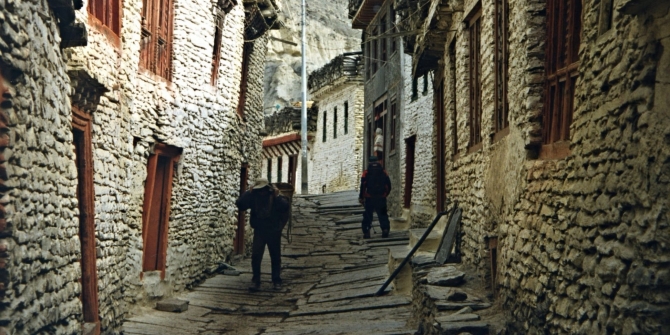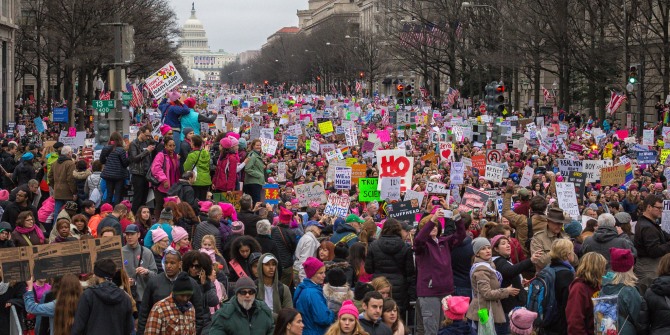 Ahead of Modi’s visit to the UK next week, a number of campaign organisations, academics and individuals are coming together to protest increasing violence against minority groups under the current government. Kalpana Wilson outlines the background to the #ModiNotWelcome campaign and the range of activities that are taking place.
Ahead of Modi’s visit to the UK next week, a number of campaign organisations, academics and individuals are coming together to protest increasing violence against minority groups under the current government. Kalpana Wilson outlines the background to the #ModiNotWelcome campaign and the range of activities that are taking place.
While preparations for an ‘Olympic style’ extravaganza at Wembley stadium for visiting Indian PM Narendra Modi are underway, a large number of UK-based South Asian community groups, human rights organisations, women’s organisations, environmental campaigns, academic and student groups and individuals are coming together around the slogan of #ModiNotWelcome to protest the increase in violence against minority groups under the current government. They are also raising questions about Modi’s role in the 2002 Gujarat riots while he was Chief Minister and highlighting the current policies of his government which they believe are leading to mass dispossession, loss of livelihoods and the undermining of democratic rights.
Recent months have seen a number of incidents of violence against Muslims, Christians and Dalits by Hindu right-wing organisations in India. Perhaps the most widely reported was the murder of 52 year old Mohammed Akhlaq by a mob of around 200 Hindu young men mobilised by a local organisation, the Samadhan Sena (Solution Army) on the pretext of accusations of eating beef. This was followed by a spate of similar incidents in different parts of the country. Other high profile incidents include the case of two young children, Vaibhav, aged 3 and 9 month-old Divya, of a Dalit family who died in an arson attack in Haryana, and the murders of rationalist writers M.M. Kalburgi and Govind Pansare. These attacks have sparked protest and outrage across India, but they have also been justified and trivialised by several government Ministers and ruling BJP MPs via mainstream and social media channels while Prime Minister Narendra Modi himself remains silent.
Nor are these disturbing trends restricted to India. The Hindu Right has a network of organisations across the UK. The most significant of these is the Hindu Swayamsevak Sangh (HSS) which is the British wing of India’s Rashtriya Swayamsevak Sangh or RSS, a paramilitary organisation formed in the 1920s of which Modi is a former full-time worker. While the HSS may have ostensibly charitable and cultural aims, some of its activities have given rise to concern and suggest that its claims to represent the views of all Hindus in Britain are questionable. The HSS UK is currently being investigated by the British Charity Commission for hate speech against Muslims and Christians. After the Gujarat pogroms of 2002 an investigation by AWAAZ suggested HSS and its charity wing Sewa International had been channelling funds to organisations directly involved in carrying out the violence.
The UK Welcomes Modi campaign, backed by long term UK-based associates of Modi such as Manoj Ladwa (who was public relations advisor for Modi’s election campaign last year) seeks to demonstrate support for the Indian Prime Minister among the 1.6 million-strong Indian community in Britain, but increasing numbers of people are disturbed by the signs of deepening intolerance in India under Modi.
This is reflected in the wide range of dissenting activities which have been taking place in the UK recent weeks. Ahead of Modi’s visit, all the major South Asian and BME women’s organisations in the UK and more than 20 academics concerned with gender violence have written an open letter to Modi drawing attention to ‘the hate crimes, patriarchal violence and misogyny perpetrated by the RSS and its affiliated organisations’.
Faculty, students and alumni of Cambridge have written to the Vice-Chancellor urging him not to host Modi in a planned address to the Senate, noting that the invitation comes at a time when ‘prominent Indian writers and intellectuals are returning their state honours in protest against the ongoing assault on civil liberties and academic freedom under Mr Modi’s government’. Meanwhile, a petition addressed to Labour MPs Keith Vaz, Steve Pound, and Virendra Sharma, who announced that they would be donating their pay rises for November to help fund the Wembley extravaganza, has been launched. It asks them to reconsider their decision and instead donate the money to survivors of communal violence in India or alternatively to foodbank charities in the UK.
In the run-up to Modi’s arrival, a Reclaim Diwali event will take place on Friday 6 November featuring a range of international artists. The organisers describe it as a ‘secular celebration of shared cultures, blurred boundaries, daring to dream and organising against oppression’ and funds raised will go the survivors of the 2013 Muzaffarnagar riots. And on 10 November, a number of London-based student organisations are jointly calling an event at SOAS called ‘We Need to Talk About Modi’.
This will culminate in a Day of Protest at Downing Street and Parliament Square on 12 November, which thousands of people are expected to attend from across the country. David Cameron is eager to roll out the red carpet for Modi and promote the interests of British corporates, but the voices of those proclaiming ‘Not In Our Name’ will not be easily silenced.
Cover image: Narendra Modi addressing BJP Karyakarta Sammelan in Goa. credit: Wikimedia Commons CC BY-SA 2.0
Note: This article gives the views of the author, and not the position of the South Asia @ LSE blog, nor of the London School of Economics. Please read our comments policy before posting.
About the Author
 Dr Kalpana Wilson is Visiting Fellow in Gender Theory, Globalisation and Development at the LSE Gender Institute.
Dr Kalpana Wilson is Visiting Fellow in Gender Theory, Globalisation and Development at the LSE Gender Institute.








Thanks for writing, this Modi juggernaut needs to be stopped in its tracks.
I believe Modi has been cut down to size by Nitish Kumar and company in Bihar.